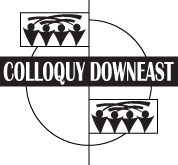The State of the World by Mid-Century
| |||||||
The State of the World by Mid-Century
The colloquy will explore projections on the state of the world by mid-century and the challenges that world will entail for the United States. The progress of the past decades is historic—connecting people, empowering individuals, groups, and states, and lifting a billion people out of poverty in the process. But this same progress also spawned shocks like the Arab Spring, the 2008 Global Financial Crisis, and the global rise of populist, anti-establishment politics These deep shifts in the global landscape portend a difficult near future but the same trends also can create opportunities for better outcomes over the long term.
The readings will draw on one of the best analytical projections — prepared by the U.S. National Intelligence Council late last year and presented in early January to both the outgoing and incoming President. It is entitled Paradox of Progress and explores three scenarios for how the future could unfold.
The Colloquy will include three sessions that draw on this report to explore alternative responses to global volatility—at the national level (“Islands”), regional level (“Orbits”), and sub-state and transnational level (“Communities”).
Ken Hillas retired as a Senior Foreign Service Officer in 2013. He served in multiple posts overseas and as a Professor at the National War College. He has served on the Board of the University of Maine’s School of Policy and International Affairs and is currently adjunct professor of global politics and U.S. foreign policy at the University.
Syllabus/Reading
Session One, Islands
…will investigate a restructuring of the global economy that leads to long periods of slow or no growth, challenging both traditional models of economic prosperity and the presumption that globalization will continue to expand. The choices governments will face might tempt some to turn inward and adopt protectionist policies, while others find ways to leverage new sources of economic growth and productivity.
Session Two, Orbits
…will explore a future of tensions created by competing major powers seeking their own spheres of influence while attempting to maintain stability at home. It will examine how the trends of rising nationalism, changing conflict patterns, emerging disruptive technologies, and decreasing global cooperation might combine to increase the risk of interstate conflict.
Session Three, Communities
…will explore how diminishing capacity of national governments could open space for local governments and private actors, challenging traditional assumptions about what governing means. Information technology could remain the key enabler, and companies, advocacy groups, charities, and local governments could prove nimbler than national governments in delivering services to sway populations in support of their agendas.
▼ Registration
Registration
Bookings are now closed (or the colloquy has been cancelled)
We aren't currently accepting bookings for The State of the World by Mid-Century.
If you are trying to pay for a colloquy that you've already attended or have questions about refunds, please contact our Treasurer to work out the details.
▲ Hide...
